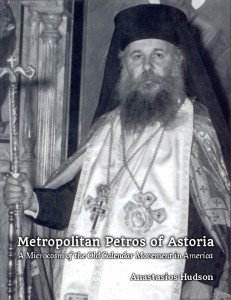Heavenly King
Dear Friends in Christ,
Most prayers of the Orthodox Church begin with the following prayer:
Heavenly King, O Comforter, the Spirit of Truth, Who Art everywhere present and fillest all things, O Treasury of blessings and Bestower of life, come and dwell within us, and cleanse us from all stain, and save our souls, O Good One.
The only exception is that we do not pray this prayer between the great feast of Pascha and Pentecost, because during this time we commemorate Christ’s Resurrection continuously, recall his post-resurrectional appearances, His Ascension, and His promise to send the Holy Spirit when He was no longer with them.
As with many of the prayers which are commonly said, we often rattle them off without considering their deeper meaning. One important reason though that prayers such as these are so common is that the Holy Fathers, under the inspiration of the Holy Spirit, thought it necessary to repeat them frequently so they would “sink in” over time. Indeed, after such prayers have become ingrained in us, it is often the case that suddenly we contemplate a word, a phrase, or some aspect of the prayer that we had not considered before.
This prayer is directed toward the Holy Spirit, the third person of the Holy Trinity. We learn from the prayer that the Holy Spirit is the Heavenly King, which follows from His being God, consubstantial with the Father and the Son. We also see that he is everywhere present and filling all things, and that he bestows blessings and gives life; without His presence, life would wither away, and this world would cease to exist. In our times of feeling down, when we wonder where God is in our life, we should recall that if God were not constantly willing for us to be alive, we would cease to exist in an instant. The very fact that we are alive and moving is by God’s will and intervention, and He is present with us always.
We ask the Holy Spirit to come and dwell within us and to cleanse us from all stain. For those outside the Church, God works from without; in other words, He reaches out to us, allowing us to come into situations that will benefit our soul and lead us to salvation (whether we think of these situations as “good” or “bad” at the moment they occur, we know that all things work together for our salvation). He gives blessings, responds to prayers, and stands with them.
However, for the Orthodox Christian, the Holy Spirit has entered into His soul, and works from within, by virtue of his chrismation. While the non-Orthodox Christian may be forgiven for the individual sins which he repents of, at the Orthodox Christian’s baptism, chrismation, and at each sincere confession, all of his sins removed completely, blotted out, and forgotten, and indeed his sinful condition is reversed gradually as he becomes more and more godly. Grace for the Orthodox Christian is not a temporary, outward favor, but an internal and continuous flow, raising him above the natural state of life, and allowing him to live in a state of anticipation of the Resurrected life of eternity. We see this in the spiritual gifts that Orthodox Christians often exhibit, especially in the life of the saints. Martyrs exhibit great patience, the unmercenary saints are given healing powers, some elders can guide us through clairvoyance, and others are given great counseling talents to reconcile enemies.
We see that the Holy Spirit saves our souls. Salvation is not a one-time event, given to the sinner at the moment that he says a certain prayer accepting Christ, as some theorize. Accepting Christ and His work is the first stage in a process of becoming God-like through the grace of the Spirit. When we come to judgment, will we be full of the Holy Spirit, or will we have let Him go away through negligence or even have pushed Him away by backsliding into sinfulness? We are given so much grace that we can become God-like, but the flipside is that we will be judged on whether we allow that to happen, and how far we take the gift. We should always recall the parable of the talents, where the man who buries the coin entrusted to him is condemned, whereas the two men who multiply the coins through investing are praised. We cannot sit on the treasure and squander the opportunities given to us.
I will close by remarking that this prayer reveals that the Holy Spirit is the Comforter, and the Spirit of Truth. God comforts us and nurtures us, but sometimes this causes us to have to confront ourselves, our lives, and our actions in a very honest way. This is often a painful process, but we are liberated after we go through it. The comfort offered to us is then permanent, a confidence that endures and refines us, instead of a temporary “fix” or a “feel good moment.” How often we seek fixes and feel good moments, the feedback of the friends we know will agree with us, and then as soon as we sink back, we seek it again in a never-ending cycle. But the Holy Spirit will help us to overcome our shortcomings and blocks, and cause us to grow. Let us endure temporary suffering in return for eternal comfort!
O Holy Spirit, come and save us!
In Christ,
Fr. Anastasios


